Obi Most Popular Choice Among Nigerians — Kwakol Poll
Peter Gregory Obi, the presidential candidate of the Labour Party, is the most popular candidate among the major contenders seeking to become the nation’s next president, a new poll conducted by the Kwakol Research Institute has revealed.
The poll, which took a different approach to collecting valuable data and providing reasonable conclusions, arrived at the conclusion that the Labour Party presidential candidate was the ideal choice for more than 50 percent of respondents, including women, the unemployed, civil servants, private sector participants, and students, especially those in tertiary institutions.
Unlike most polls, Kwakol gathered most of its responses from rural dwellers. “It is important to note that, unlike the majority of the polls in Nigeria, we polled more registered voters in rural Nigeria than registered voters in semi-urban Nigeria and urban Nigeria, respectively,” it stated.
The research agency also used several parameters to arrive at its conclusion—for example, the issue of income classification, educational background, work status, and sex were factors used in arriving at its conclusion.
In summation, 52.80 percent of respondents said that they would vote for the Labour Party, 18.9 percent said they would vote for the Peoples Democratic Party (PDP), 15.6 percent said they would vote for the All Progressives Congress, and 10.4 percent said that they would vote for the New Nigeria Peoples Party (NNPP).
It must be pertinent to note that respondents in the exercise cut across the six geopolitical zones and income backgrounds. The spread of the poll had 45 percent of respondents residing in rural areas, while semi-urban areas narrowly edged out urban respondents by a point, with them taking up 28 percent and 27 percent, respectively.
A further breakdown showed that the agency agreed with popular census figures of the numerical strength of the Northwest and Southwest geopolitical zones, with the spread resulting in 25.27 percent and 19 percent, respectively, while the Southsouth and Southeast ended up with 13.44 percent and 12.13 percent, respectively.
Obi gained more acceptance with young people who fell within the age bracket of 18 to 69, with 56 percent of those within the age range of 35 to 49 years and with valid Permanent Voter Cards (PVCs) saying that they would vote for him at the February 25 election.
Across the occupational background divide, over 70 percent of respondents working in the private sector said that they would vote for Obi and his Labour Party. This performance was closely followed by civil servants, whose 66.9 percent of respondents said that they would vote for him as president in next week’s Saturday election. 53.4 percent of the students said they would vote for him. This was closely followed by 52.3 percent of unemployed respondents who said they would vote for him.
Another interesting revelation from the Kwakol poll revealed that over 67 percent of respondents earning above N200,000 said that they would vote for Obi. This result was closely followed by the 64.5 percent of respondents who earned between N101,000 and N200,000 and said that they would vote for Obi.
The poll also revealed that over 53 percent of female respondents said that they would vote for Obi, a figure that is more than the APC, PDP, and NNPP figures combined. Despite a slight gender gap, 52.61 percent of male respondents said they would vote for the Obi.
Another parameter used in the analysis revealed that an overwhelming 64.41 percent of respondents with at most a tertiary education said that they would vote for Obi and his Labour Party in next week’s presidential election. The least surprising finding was that 30 percent of uneducated respondents said they would vote for Obi and the Labour Party in next week’s presidential election.
Kwakol provided two scenarios that might be exceptions to the poll results. First, it was agreed that though the sample size of 1,000 respondents wasn’t representative enough, Obi wasn’t totally certain of victory in the next Saturday’s presidential election. Why you may ask?
Elections in Nigeria have always been “characterized by electoral violence, terror violence, sectionalist violence, and voter intimidation,” it stated.
For the first scenario, it was predicted that in the event of violent attacks in the North Central geopolitical zone, voter turnout would decline significantly. “A situation that would have an impact on the number of votes available for the Labour Party and the NNPP,” it said. This leaves the two major political parties to slug it out.
In the north-east geopolitical region, “if an outburst of violence by non-state actors occurs in the northwest, this will significantly reduce voter turnout, and the only parties to benefit from traditional voting patterns will be the PDP and the APC, whose strongholds are in the geopolitical zone.”
For the Northwest, in the event of a breakout of violence, “all the frontline political parties will be adversely affected, but the APC will benefit from the 2019 voting patterns despite a significantly lower voter turnout.”
For the South East geopolitical zone, it feared that concerns from the Indigenous People of Biafra (IPOB) militant wing—the Eastern Security Network (ESN)—could reduce the numerical chance of Obi, while in the South-South zone, Kwakol said that “we do not expect to see an outburst of violence from the militants in the South-South geopolitical zone, but we suspect that hired political thuggery could be a recurring theme during the election, particularly in River and Delta States. We think that this will likely be due to specific interests for the minimum 25 election of votes cast in the two respective states. We also suspect that pro-LP strongholds in the region might be targeted in order to heighten voter anxiety, therefore dampening voter turnout. The LP, more specifically, will rue this probable outcome.
For the South West region, it was argued that if political thuggery erupted, the APC would benefit, reducing the Labour Party’s chances significantly.
In essence, it predicted that “if either of the six scenarios below of electoral violence plays out in any of the geopolitical zones, the probable political party to benefit is the APC, most likely due to a repeat of the 2019 voting patterns that were favorable to the party in hindsight.”
“In the eventuality that the presidency has to be decided by a run-off presidential election round between the two parties with the greatest number of votes cast in their respective favor, and if these two parties happen to be the APC and LP, we predict a very close race with the APC as the eventual winner.
“The APC’s incumbency, reliable voting patterns in its strongholds in the northwest and southwest, and the further polarization of the electorate along time-honored ethnoreligious lines in the midst of reeling voter fatigue will be of advantage to the APC,” it stated.
However, in the event of a likely run-off between the PDP and the Labour Party, Kwakol predicts that while the PDP will be adversely affected by the expected low voter turnout in the Northwest and while the Southwest will back the LP instead of the PDP, it will not be enough for the LP. The PDP will benefit from Nigeria’s time-honored voting patterns along ethnoreligious and sectionalist lines, where the proportion of registered voters across the north will be of utmost importance.
In the event of a likely APC-PDP runoff, “the PDP will benefit from a section of the electorate that is disgruntled with the APC’s same-religion candidate pairing, especially in the south-south and southeast.”
“The PDP will also benefit from a section of the LP strongholds in the south-south and the southeast. The APC will maintain its strongholds in the northwest and the southwest albeit with a reeling voter fatigue. This leaves the key battleground geopolitical zones in the context of this run-off pairing to be the northeast and the north-central zones. Thus, we predict that the PDP will just about edge out the APC in this very tight race,” it predicted.
It created another permutation, stating that in the event of a last-minute alliance between “the APC and the NNPP with the NNPP dropping out of the race, we predict that the APC will be able to gain more support from the NNPP stronghold in the north and northeast, and thus, it is likely that the APC will win the election in the first round.”
In its final permutation, Kwakol argued that “if there is a last-minute alliance between the PDP and the NNPP with the NNPP dropping out of the race, we predict that the PDP will be able to gain more support from the NNPP strongholds in the Northwest. However, we cannot conclude if this is enough for the PDP to win the presidential election in the first round.”


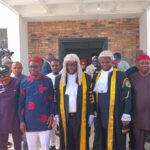
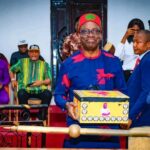
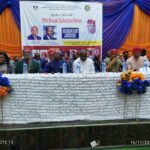

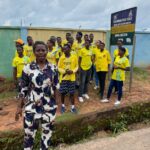

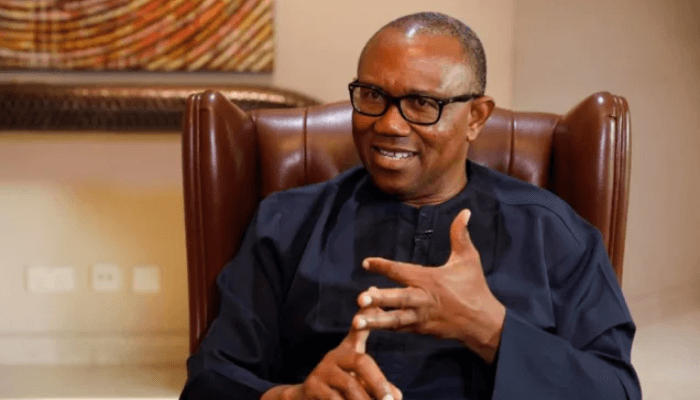



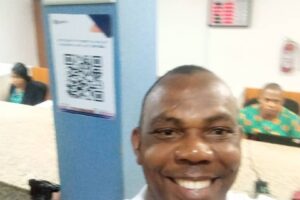
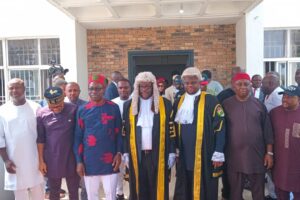
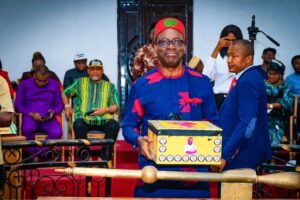
Add Comment